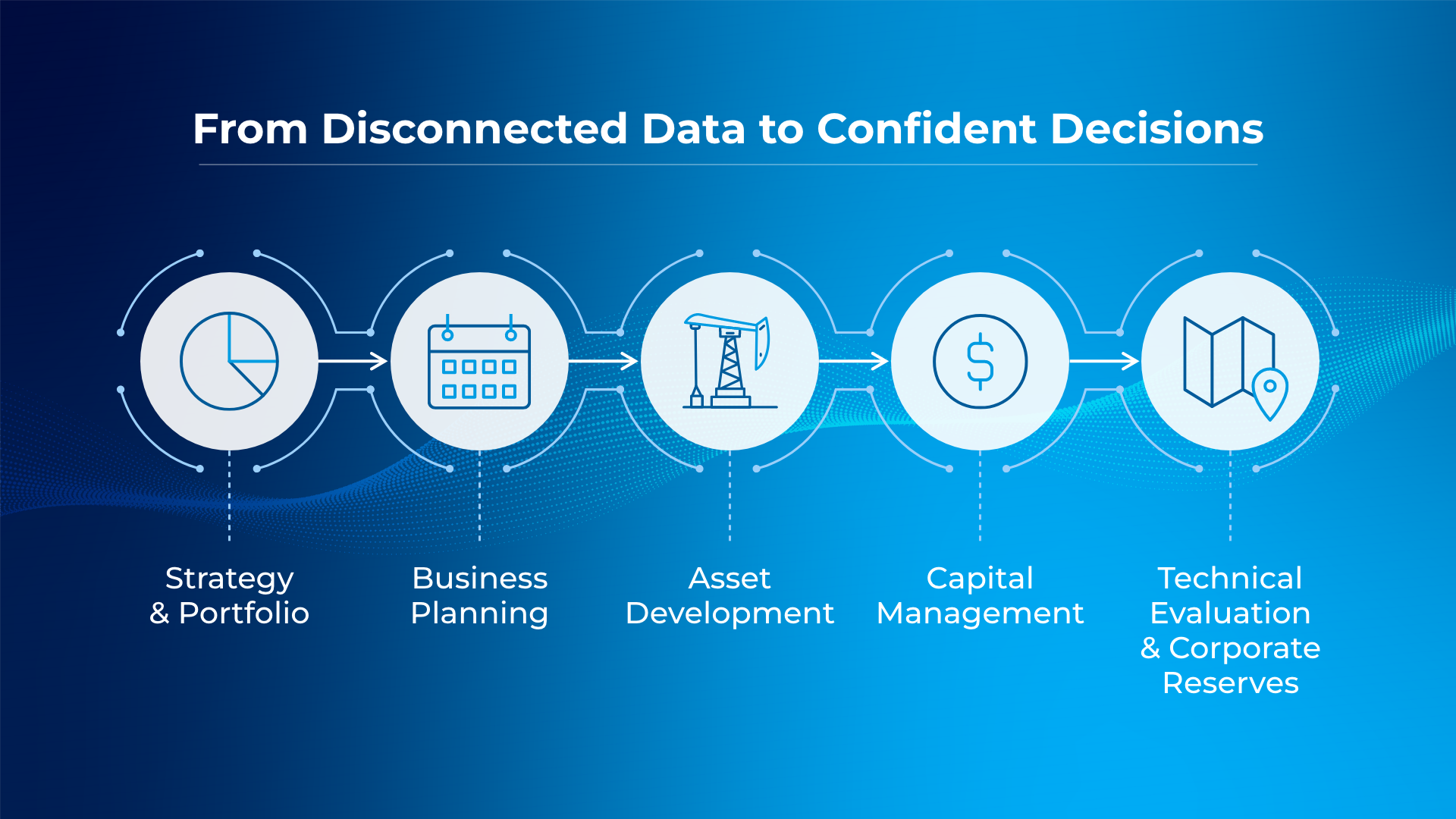At a time when nearly 90% of upstream investment is being directed toward offsetting natural declines in existing fields rather than expanding production, it is critical to use connected, trustworthy data for strategic decision-making [1]. Even small gaps in data—whether outdated, inconsistent, or siloed—can cascade into major inefficiencies. Planning slows, operational risk rises, and value gets left on the table.
But this does not really affect those that establish reliable, real-time data flows. There are plenty of oil and gas companies with connected data systems who are well positioned to optimize investments, streamline operations, and make confident, forward-looking decisions. Let’s find out how.

What Best Practice Looks Like
Effective planning relies on a structured, connected data approach. Best practice means having shared, evergreen data across the organization, so every team works from the same information. The data must be provided at the right level of granularity, whether monthly budgets or long-term strategic planning, and maintain the “Golden Thread” of visibility to ensure transparency as information moves through different functions. On-demand comparisons between actuals and forecasts allow teams to correct course quickly, while maintaining archives of historical data ensures trends can inform future decisions.
When it comes to specific planning processes, integration is key. Connected data is essential across:
- Strategy & Portfolio: Optimize opportunities and set corporate goals.
- Business Planning: Build long-term plans and budgets aligned with corporate strategy.
- Asset Development: Feed detailed field-level analysis into the portfolio.
- Capital Management: Monitor spend and reforecast efficiently.
- Technical Evaluation & Corporate Reserves: Maintain accuracy in reserves and forecasts.
The Value of Integrated Planning Systems
When data flows seamlessly, a team can focus on analysis and forecasting instead of manual data wrangling, increasing productivity and reducing risk. If Gartner found poor data quality costs organizations an average of $15 million per year [2] back in 2018, imagine what it has risen to nowadays.
The scale of investment to solve these challenges is also pretty noteworthy. In 2023 the global oil and gas data management market was valued at $29.4 billion and is projected to grow at a 16.8% CAGR, reaching $142.4 billion by 2033 [3]. The industry has its sights on better planning with reliable data.
How Quorum Makes It Possible
Quorum's portfolio of integrated planning solutions connect asset-to-corporate workflows, bridging gaps between field development, production modeling, execution, financial planning, strategy and portfolio, petroleum economics, and reserves and resource management. By integrating processes and providing reliable, on-demand data, Quorum enables leaders to make accurate, timely investment decisions across the organization.
Make Each Planning Cycle Count
Indisputable data empowers leaders to collaborate with confidence, break down silos, and maximize productivity and shareholder value. With integrated planning systems like Quorum, oil and gas companies can turn disconnected data into confident decisions, ensuring every planning cycle delivers its full potential.
Streamline planning and turn data into confident decisions with Quorum Software. Request a demo or take a first step with a free advisory session of Planning Space Portfolio to discover how integrated planning can inform capital allocation and portfolio-level decisions.
References
- IEA — Declines in output from existing oil and gas fields have gathered speed, with implications for markets and energy security [2025]
- Gartner – How to Stop Data Quality Undermining Your Business [2018]
- Allied Market Research – Oil and Gas Data Management Market (2024–2033) [2024]
 Previous Page
Previous Page